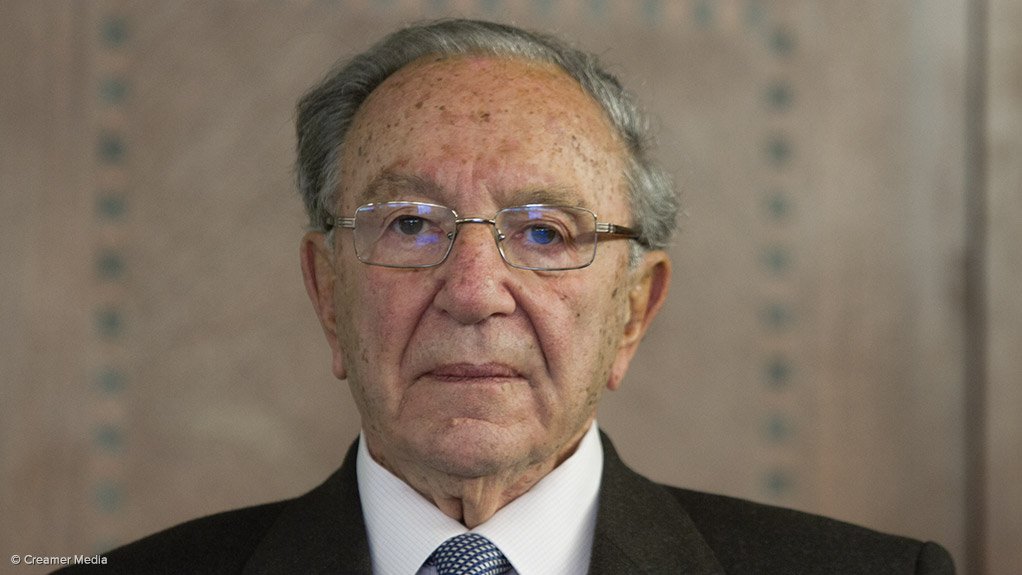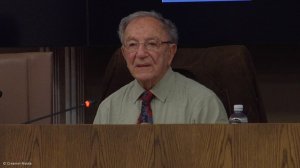PRETORIA (miningweekly.com) – The time had come for government and business to find ways and means of working together to end South Africa’s current economic stagflation crisis, United Nations Commission for Africa (UNCA) mineral value chain lead consultant, anti-apartheid struggle veteran and former African National Congress MP Ben Turok said on Monday.
Turok, who was speaking at an economic policy dialogue in Pretoria – hosted by the Department of Trade and Industry and attended by Creamer Media’s Mining Weekly Online – said South Africa’s sometimes aggressive and hostile legislation was preventing cooperation between government and business, which was essential for the functioning of the economy. (Also watch attached Creamer Media video).
“We’re in the doldrums in policy. Parliament is not able to create an environment where these two large sectors can work together,” he said, adding that the drafting of the Minerals and Petroleum Resources Development Act Amendment Bill had been a mistake.
The current UNCA lead mineral value chain consultant said South African companies were now investing more outside of South Africa than inside the country, which was a sign of an uncoordinated economy.
“The time has come for us to say this is a mixed economy in which the State and the private sector have to find ways and means of working together, each from their positions of strength, mutual respect and understanding – you do this, we do that – and meet in the middle,” the 1956 Treason Trialist, who served three years in prison and a quarter century in exile, pleaded.
Failure to work together would mean continued stagnation in mining, manufacturing and agriculture, the economy’s three major sectors.
Responding to financial services adviser Clive Ramathibela-Smith's observation at question time that the woes of South Africa's domestic economy were not apparent in the continued good performance of the Johannesburg Stock Exchange (JSE), Turok said a distinction needed to be drawn between the JSE and South Africa’s real economy owing to the effect global liquidity was having on stock markets worldwide as a result of international quantitative easing.
“Similarly in South Africa, the JSE stocks are a safe haven,” Turok said, emphasising that what needed to be considered was the real economy.
“What we need to look at is the real economy. Forget about the financial sector because there’s currently an artificial aspect to the financial sector worldwide,” he responded.
Turok was speaking on the same panel as resources strategist Dr Paul Jourdan, who called for South Africa’s mineral value chain to be optimised as a way of boosting indigenous development, and Chamber of Mines president Mike Teke, who drew attention to the chamber demonstrating how value can be added to locally mined platinum in its deployment of a platinum-based fuel cell that was successfully generating off-grid electricity competitively at its head office in central Johannesburg.
Turok lamented that investment by South African companies outside of South Africa was now bigger than the investment of foreign companies in South Africa.
South Africa’s investment and production trajectories were both "pathetic and very dangerous", the co-drafter of South Africa's Freedom Charter 60 years ago commented.
While it was remarkable how Africa was waking up to the lack of mineral beneficiation, his interface with top government officials in South Africa had pointed to a woeful lack of coordination when it came to mineral value addition.
There was also a short-termism and opportunism within the private sector, which was counter productive to the future of the country.
The strained relationships of business with government needed to give way to the reality that the economy of South Africa represented a combination of strong private sector and public sector involvement, which the country needed to make the most of.
EMAIL THIS ARTICLE SAVE THIS ARTICLE
To subscribe email subscriptions@creamermedia.co.za or click here
To advertise email advertising@creamermedia.co.za or click here












